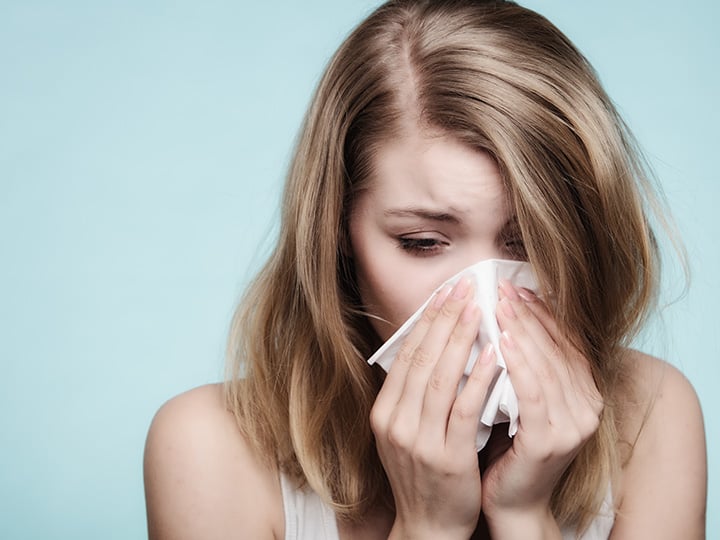To those who suffer from seasonal allergies, brace yourselves because it’s that season again. Itchy and watery eyes, constant sneezing, and runny nose are about to wreak havoc on your day. Welcome to springtime.
“Health experts estimate that 35 million Americans suffer from upper respiratory tract symptoms that are allergic reactions to airborne allergens,” according to a report by the National Institute of Allergy and Infectious Diseases, a department of the National Institutes of Health. The report goes on to state, “Worldwide, airborne allergens cause the most problems for people with allergies. The respiratory symptoms of asthma, which affect approximately 11 million Americans, are often provoked by airborne allergens.” Their conclusion is that allergies are responsible for more serious illnesses that affect between 40 and 50 million Americans.
Sounds dismal, right?
The good news is that there are many ways to manage your allergies, and here are a few ideas:
- Talk to your physician—he or she may be able to recommend over-the-counter remedies or refer you to an allergist who can perform more precise testing and prescribe immunotherapy.
- When you know you’ll be spending time outdoors, like weeding and planting in your garden, plan ahead by
- taking a preemptive antihistamine half an hour before you go out,
- wearing a pollen-filtering face mask,
- showering as soon as you come indoors, and
- laundering all clothes that are brought back into the house, including jackets and caps.
- Investigate possible sources of irritants— wall-to-wall carpeting is notorious for retaining allergens such as dust mites and pet dander, while hard floors and area rugs are easier to keep clean.
- Limit your exposure to second-hand cigarette smoke.
- And, most importantly, think about installing a home air purifying system.
Indoor air quality can actually become an issue with newer home building products, such as house wraps and insulation, that effectively seal out moisture and insulate temperature. Unfortunately those same products also seal in the allergens that do make it into your home. These allergens can circulate through your home heating and cooling system with no hope of escape. But an air purifying system can remove those allergens and restore clean air and peace of mind.
Weather Master offers a variety of air purifying systems that outperform the best HEPA (high-efficiency particulate arresting) filters. Moreover, some systems can promise unprecedented filtering of airborne allergens as small as .30 micron in size. Pollen, animal dander, smoke, bacteria, viruses and mold are trapped in filtering cycles running several times per hour, and an electrical charge is then used to kill or inactivate those pathogens. Most systems can be installed within your existing ductwork or heating and cooling system and feature easily replaced filters.
You owe it to yourself and your family to investigate your options. Call Weather Master today to discuss how we can improve your quality of air and quality of life.

